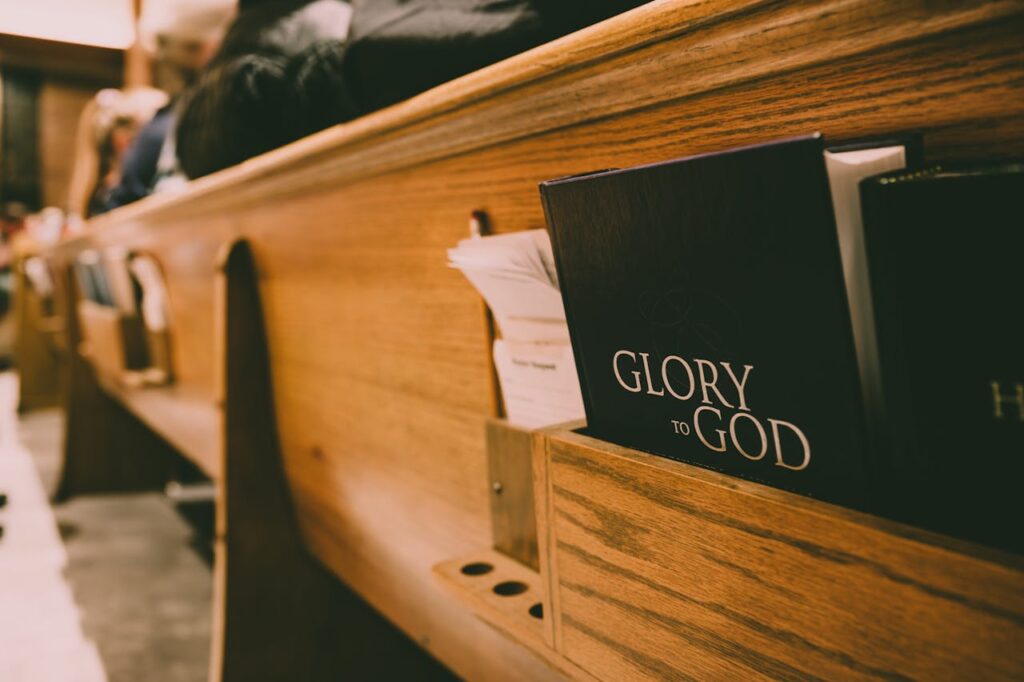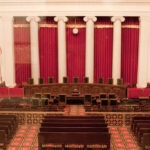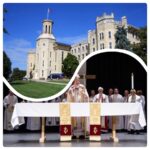One of the best gifts that I ever received was in graduate school when a fellow student gave me a stamp with the word “HERESY” on it. We still laugh just talking about it. I was known at our university for pointing out various heretical ideas that came up from time-to-time in classroom conversation. But heresy, or heterodoxy, isn’t itself a laughing matter. It’s the twisting of something quite important, what the church has generally called “orthodoxy.”
The word “orthodox” literally means “right praise.” And this is very important for modern Christians to understand because it implies something more than simply right belief. Orthodoxy involves right belief, but it’s not simply head knowledge. You will remember the accounts in the Gospel when the demons rightly identify Jesus—even when he doesn’t want to be identified—as the Son of God. The demons know exactly who he is! They had right belief. But they were far from orthodox.
To be orthodox is to live into the truth of God’s full revelation in Jesus Christ. And to live into that truth, our hearts, our lives, our focus must be set on the worship of God. St. Paul pointed to this reality of a life lived in praise when he wrote to the Romans, “to present your bodies as a living sacrifice, holy and acceptable to God, which is your spiritual worship” (12:1). In other words, offer to God everything that you are: your very selves, holy and acceptable. And he even calls this “spiritual worship.” Paul goes on in the next verse to tie this spiritual worship to what we might call right belief. He writes, “Do not be conformed to this world, but be transformed by the renewal of your mind, that by testing you may discern what is the will of God, what is good and acceptable and perfect.” Together, these verses point to “right praise.”
But right praise implies the ability to identity the God we worship, both in our lives and in our corporate gatherings. I love how the Book of Common Prayer begins Communion services with the words “In the name of God: Father, Son, and Holy Spirit.” There’s no doubt who it is we are there to worship. If we don’t know who God is we can easily fall into idolatry. And idolatry is the true opposite of orthodoxy. There is a reason why John ends his first letter with the words, “Little children, keep yourselves from idols” (5:21). At its heart, orthodoxy is the attempt to rightly name God so that we will rightly worship him in mind and heart.
The earliest Christians claimed that God is the one who raised Jesus from the dead. But we also know—as they did—that Jesus claimed to be one with God the Father. And additionally, that the Spirit of God not only descended on Jesus at his baptism, but was breathed by the Risen Christ into his disciples. The outline of the doctrine of the Trinity is clear in the pages of Scripture. But it also needs further articulation.
And this is where the creeds and councils of the church come into play. Pointing to the creeds and councils in no way implies that the Bible is lacking, or that God’s revelation in Christ was incomplete. Instead, the creeds provide us with a roadmap of the “faith once delivered to the saints,” as St. Jude wrote. The Bible, read with the creeds as a guidepost, focus us on the revelation of God made known in Jesus. Together, they keep us from falling into heresy (i.e. idolatry), so that our focus can be right, our praise directed to the God who called the people of Israel to be his own, and was made known fully and finally in the life, death, and resurrection of Jesus Christ. Orthodoxy (and the grace of God’s Holy Spirit) enables us to live that life that is true life, kept free from the world’s diversion, transformed as we behold God face to face in Jesus Christ.
This article was first published on Seedbed here.






Comment by Jay on June 7, 2024 at 12:41 pm
It is interesting that the article about heresy appears with a picture of the 2013 PCUSA hymnal, Glory to God.
Is this a coincidence or intentional?
Comment by Jeffrey Walton on June 7, 2024 at 2:08 pm
It’s the image Seedbed paired with the original publication of this piece on their website, so I suspect it was coincidental.
Comment by Salvatore Anthony Luiso on June 12, 2024 at 2:29 am
Thank you for re-publishing this good brief article. I’m telling other Christians about it.
Comment by David Gingrich on June 12, 2024 at 7:14 am
Not one of us has a theology that is without error. Love God. Love others. Keep learning. Be humble.